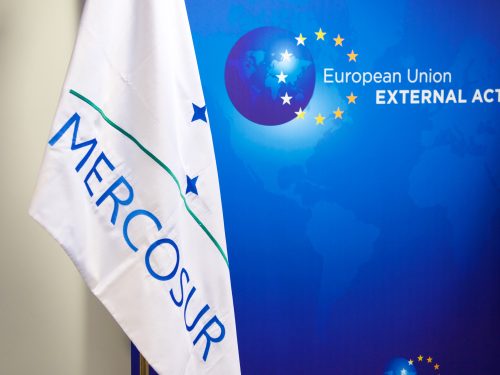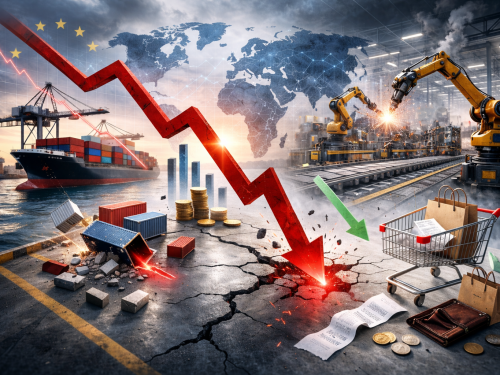News
Share on
The green light from the Ministry of the Environment and Energy Security to the Energy Release Decree was a result strongly desired by Confindustria. "The measure is fundamental for the Italian production system and is an important step in the decarbonisation process. Energy-intensive companies have been waiting for it for a long time and it is the result of synergic work with the Ministry of the Environment and the GSE". Thus Aurelio Regina, Confindustria President's Delegate for Energy, in an interview with Sole24Orecommented on the approval of the decree law.
Now, however, it is necessary to work on other measures to tackle the complex energy issue, both in Italy and in Europe. For this, according to Regina, we need a single European energy market, with a single price for companies in order to avoid competition between member states: the competition 'is not, and must not be, between the borders of Europe, but towards other economic powers, starting with the US and China'.
Equally necessary for the decarbonisation pathway is the energy mix, to provide price stability and security of supply. For this, it is necessary 'to increase renewables, to allow large investments in hydroelectricity, to work for the decarbonisation of gas and on nuclear power by evaluating the latest generation of power stations, small reactors that would be very functional for our district reality,' said Regina, recalling that we have a very valuable supply chain in this sector, which today works abroad and often for our direct competitors. In addition, technological neutrality must be guaranteed 'in order to reach the targets set. Otherwise, Italy and Europe will no longer be competitive'.
According to the President's Delegate, Italian industry is convinced of the need to pursue ambitious environmental goals, but it must do so in the right time and manner. "For companies, decarbonisation represents an opportunity and, at the same time, a virtuous process to develop new production chains linked to the energy transition. On the environmental issue,' Regina continued, 'our industry has a very strong sensitivity and we are also well positioned in terms of energy productivity: we are at 111 euros, compared to 106 in Germany, 103 in France, 93 in Spain, and 93 in the European average. Therefore, for the same amount of energy, we produce more value, which means we use it more efficiently".
During the interview, talking about the Clean Industrial Dealproposed by Von der Leyen, who set the target of reducing emissions by 90% by 2040, Regina pointed out that this is perhaps too challenging a target. It has to be understood how it will be realised without losing competitive ability. Moreover, a lot of resources will be needed and companies, as well as Member States, cannot be left alone. "Energy policies - said the President's Delegate - should be based on three pillars: the competitivenessand hence the need for a single European market and a single energy price; the securitywhich means certainty of supply; the decarbonisationwhich must be achieved through technological endowments that only industry can guarantee'. These elements must be held together, acting in a coherent and coordinated manner both in Italy and in the EU, otherwise imbalances in competitiveness will be created between individual states.
Another key measure, according to Regina, is the Gas Release as many companies use gas: when fully operational, it should account for about 30% of the total volumes consumed by gas companies. In this transition phase, all technologies are important, from renewables to traditional ones.
Within this framework, the urgency remains, "of a ETS revision - said the Energy Delegate - which has turned from an incentive into a tax. In addition, there are disparities between countries in the way compensation resources are redistributed: in Germany 3 billion are returned to companies, in Italy 140 million (300 in the coming year). We need a European management of the proceeds from the auctioning of CO2 certificates to compensate companies'. Then, 'it goes revised Cibam directive (Carbon Border Adjustment Mechanism): the CO2 valuation mechanism at the EU borders, which as designed makes it cheaper to import non-EU products than to produce in Europe'.
These highlighted by Regina are just some of the problems that characterised the previous European legislature and which should be overcome by favouring business investment while respecting technological neutrality. "We expect the new European institutional course to act in this direction'.
Finally, for the transition, Italy needs around 1.1 trillion, so common funds and a streamlined and easy-to-implement system of rules are needed. In this way, according to the President's Delegate, 'we could achieve a twofold objective: the climate objective and the industrial objective. We are convinced that it is possible to combine productive development with policies to protect the environment, which are not at odds with each other but, on the contrary, are absolutely complementary and instrumental in strengthening Europe's competitiveness'.




